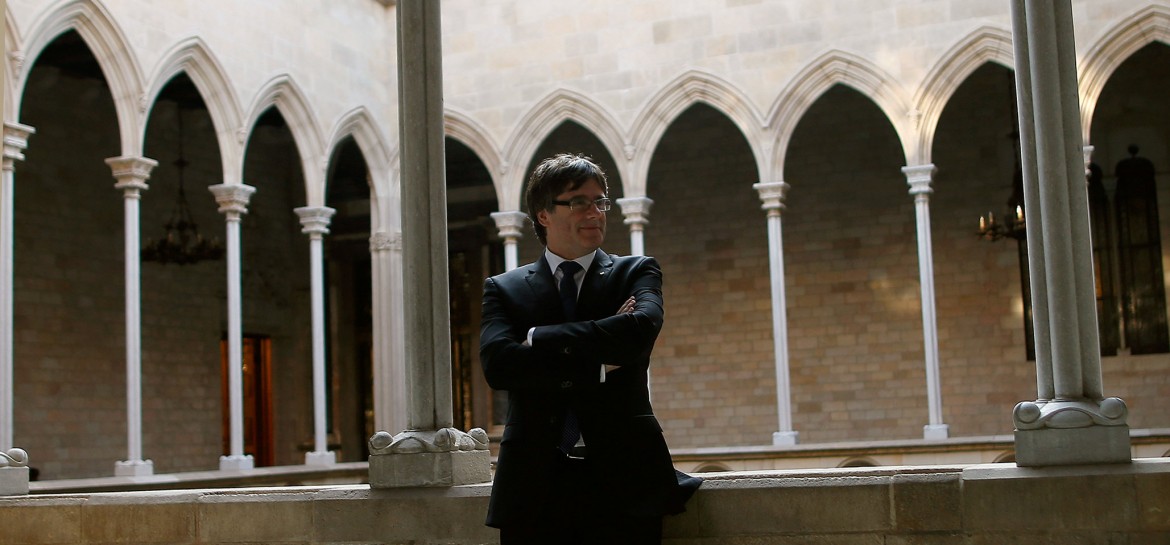Analysis
Puigdemont’s flight plays favorably in Flanders
Far-right Belgian nationalists favor Catalan independence, and the deposed Catalan president’s presence there could have a disturbing effect on the internal balance of the European Union.

Before being dismissed from his duties, along with the entire leadership of the Catalan Generalitat, Carles Puigdemont had repeatedly asked Brussels in vain for a possible mediation between the parties.
At the end of a trip worthy of a spy story — by car from Barcelona to Marseilles and from there, a direct commercial flight — the separatist leader reached the Belgian capital on Monday, though he had not been invited by the European Union.
After the application of the famous Article 155 by the Spanish authorities, and after the judges in Madrid advised that they want to question 14 members of the Catalan government, including Puigdemont, who risk between 15 and 30 years in prison on the basis of the charges of “sedition and rebellion,” a minister of the Belgian government, Theo Francken, a representative of Flemish nationalists and responsible for immigration and asylum, invited the Barcelona leader. He even stated Puigdemont could “seek political asylum” in Belgium.
This certainly is not the “internationalization” of the conflict he wanted, but in any case, this move can change the cards on the table in many ways.
Puigdemont reached Belgium with some of his “ministers,” including two members of the PdeCat centrist Party, Meritxell Borràs and Joaquim Forn, responsible for health and labor respectively, and three of the Leftist party ERC, Toni Comín, Interior Affairs, Meritxell Serret, Agriculture and the former Syndicalist Dolors Bassa. Thus, they can protect themselves from a possible arrest and get ready for the campaign for the elections to be held on Dec. 21. Even though these elections were imposed by Madrid, at the moment the Catalan Independentists, with the sole exclusion of the CUP, have decided to take part in this crucial event.
Moreover, although it is unclear whether they actually intend to request political asylum from the Belgian government, as the Spanish media broadcasted in the evening, just the presence of the Catalan leader in Brussels will have a disturbing effect on the European Union’s internal balance. So far, the E.U. has supported Madrid’s uncompromising line, given that many of the member states have unresolved separatist issues within their borders and they fear, among other things, that the Catalan crisis may trigger a domino effect.
Offering a kind of international stage for Catalan separatists, at the moment when the fate of the whole game seems to turn in favor of Mariano Rajoy’s government, is probably not the only concern (maybe not even the most important one) for Francken and his party, the New Flemish Alliance (NVA). The party is an ally of the majority government led by Liberal Charles Michel, thanks to its support from 30 percent of the population, making it the primary political force in Flanders.
While the Belgian prime minister has not made any official comment on the affair, and even the NVA leaders exclude their involvement, Francken’s party colleague, Interior Affairs Minister Jan Jambon said he was unaware of the arrival of the (deposed) Catalan president. The president of the Flemish region, Geert Bourgeois, also of the NVA party, denies even having a meeting with Puigdemont. It does not slip the fact that the initiative of the exponent of a right party that has never cut of all the contacts with the pre-war nationalists who chose to cooperate with the Nazis, does find many consensus among a significant part of the Flemish public opinion.
As historian Marc Reynebeau highlighted in an interview with Le Soir to comment on the incident, “by offering his support to other nationalist movements, whether they are Scottish, Breton or Catalan, he only reiterates the idea that the Belgian community confrontations sees two opposed ‘nations,’ and we also have our rights trampled.”
After officially refuting last week the hypothesis of wanting to follow Barcelona’s line of with a possible pro-independence referendum, the Flemish nationalists still intend to capitalize internally on the climate favorable to Puigdemont that emerged among their voters through what the French-speaking newspaper branded it as a “stab in the back of Prime Minister Michel.”
The risk is that, with the excuse of Catalonia, the difficult balance within Belgium may not go back to balance.
Originally published at https://ilmanifesto.it/theo-francken-torna-la-nazione-fiamminga/ on 2017-10-31
